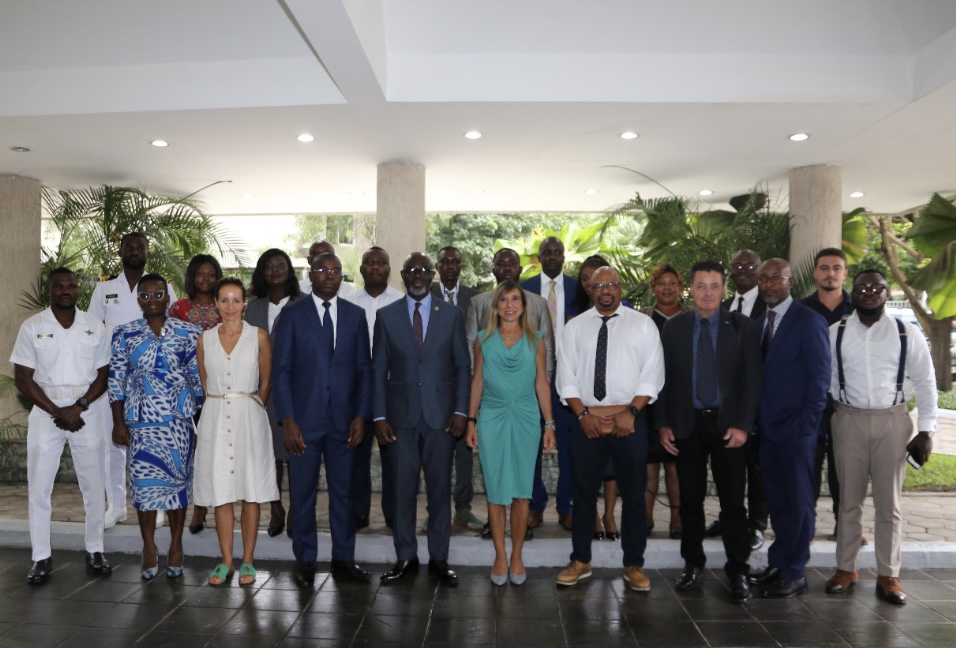By Edward Dankwah
Accra, Sept.20, GNA – Mr Kenneth Adu-Amanfoh, Acting Director General, Narcotics Control Commission (NACOC), Ghana, says maritime law enforcement officers are to be well equipped to curb maritime drug trafficking.
They will be given the requisite skills and knowledge in maritime intelligence systems, maritime trafficking methods and concealments to deal with maritime drug trafficking.
He said these were imperative to addressing the issues of illicit drug trafficking through maritime mediums for onward distribution or local consumptions.
“Seizure data indicates that a substantial proportion of the total quantity of drugs seized is confiscated from maritime modes of conveyance or has been transported by sea,” he added.
Addressing the opening ceremony of the maritime investigation workshop in Accra, Mr Adu-Amanfoh said officers should also be exposed to all forms of techniques in profiling merchant vessels and fishing boats to deal with maritime drug trafficking.
He added that, “this when efficiently done can boost investor confidence in the maritime industry and facilitate trade at the seaports without unnecessary delays.”
Mr Adu-Amanfoh said, “I am confident that the training content has been structured to achieve its intended goal of making law enforcement officers more efficient and professional.”
“I therefore urge officers to respect the views of one another, pay attention and have an open mind ready to engage, learn new skills and share knowledge during the course,” he added.
Mr Akizi-Egnim Akala, Rep of Expertise France, said organised crime posed a significant and growing threat to national and international security, as it was a global issue affecting the developing and developed countries.
Mr Akala said in the Organized Crime Index Africa 2020, the West African countries appeared to have high ranking criminality scores and very low resilience score.
He added that, according to the World Bank, the criminal economy in Africa was estimated to be over 3.3 trillion dollars by 2015 and exceeded by far the total Africa GDP.”
Mr Akala said in the last 3 years, 57 tonnes of cocaine had been seized in West Africa, but according to the United Nations Office on Drugs and Crime (UNODC), the trafficking was five times more.
“…on May 19, 2022, 115 kg of cocaine worth 7.5 billion of CFA sent from Sierra Leone to Ghana were seized in Burkina Faso,” he added.
Mr Akala also stated that most of the illicit goods were channeled by sea from one continent to the other via vessels due to the large quantities involved.
He told the trainees that, “but we know that vessels are like complex houses and without reliable intelligence the searches are to no avail.”
“This why you have been selected to attend the maritime intelligence training, to enable you to enhance your capacities in information collection, analysis and processing to support the operational units by providing them with the most reliable intelligence to target the right vessels for search,” he added.
Anna Lixi, Head of Governance and Security, EU Delegation to Ghana, said, according to the UNODC, West Africa faced a growing influx of drugs arriving from Latin America through the region’s ports and airports.
She said, “Ghana’s deep-water ports, for instance, makes the country an attractive logistics hub for drugs.”
“Large amounts of these drugs are destined for European markets, UNODC estimates that the trade is worth around USD 800 million annually,” she added.
Ms Lixi said the EU Strategy to tackle organised crime and the EU Strategy on Drugs recognised that international cooperation must be stepped up to address and reduce international drug trafficking.
She said, in many cases drugs were hidden among other legitimate cargo, with techniques that are becoming more sophisticated.
“In many cases drugs are concealed among other legitimate cargo, with techniques that are becoming more sophisticated.”
“Maritime intelligence units are essential to help identify and trace these illicit consignments, including by seizing drugs, collecting evidence against suspects and developing criminal cases,” she said.
She added that, “We are here today to help strengthen regional cooperation on this issue, by bringing together representatives from both Ghana and Sierra Leone.”
Ms Lixi said law enforcement officers must be cautious and alert as traffickers moved goods and money across borders quickly.

She also stated that in doing these, information sharing about crimes and their activities between countries and national security agencies was key.
“They move goods and money across borders quickly. In this context, law enforcement officers need to stay ahead of the game and to achieve this, sharing information about criminals and their activities between countries and national security agencies are essential.”
“We must therefore join forces in the fight against the international drug trade, and today we are supporting this goal by building relevant capacities for cross-border collaboration,” she stressed.
GNA